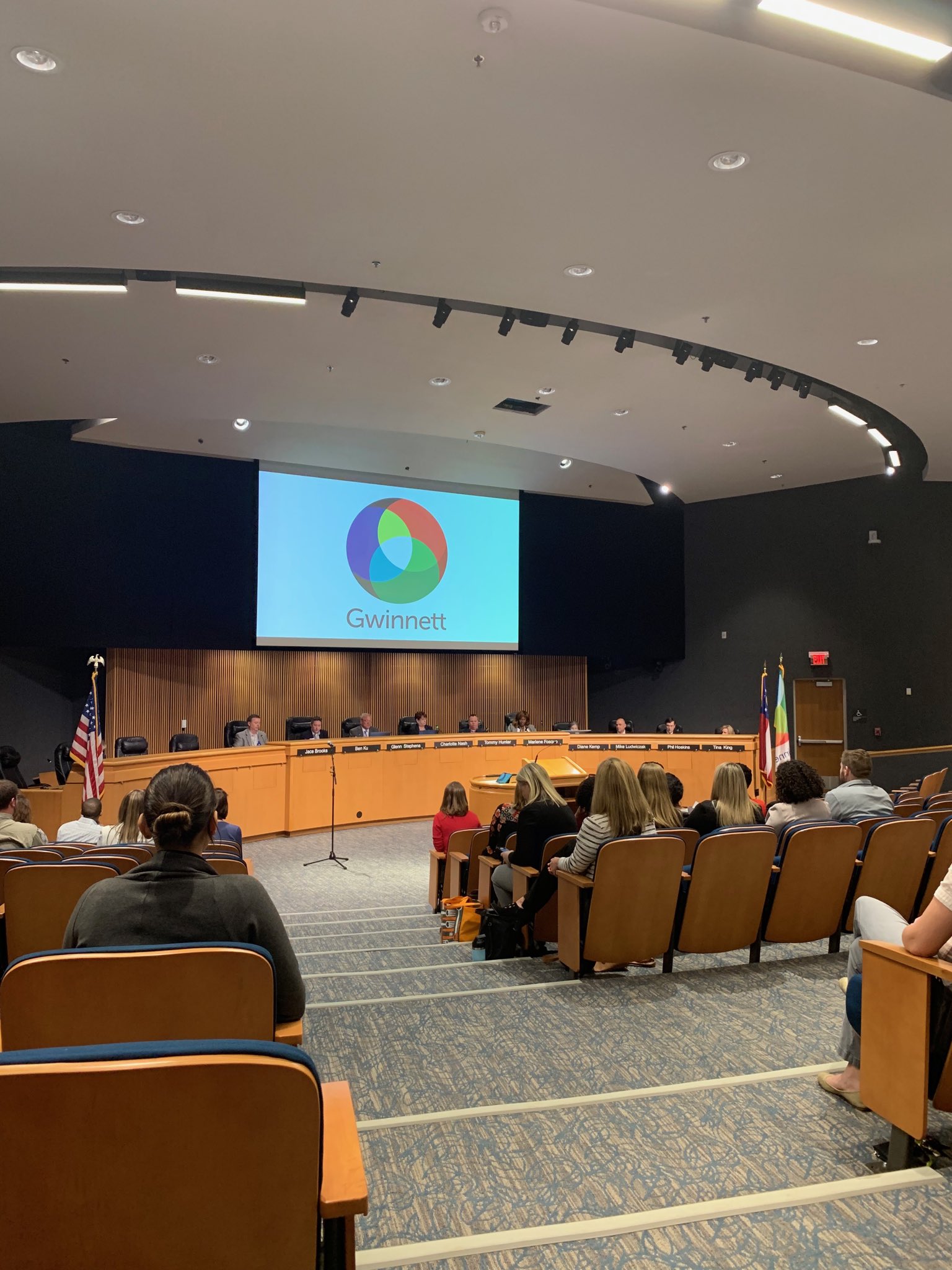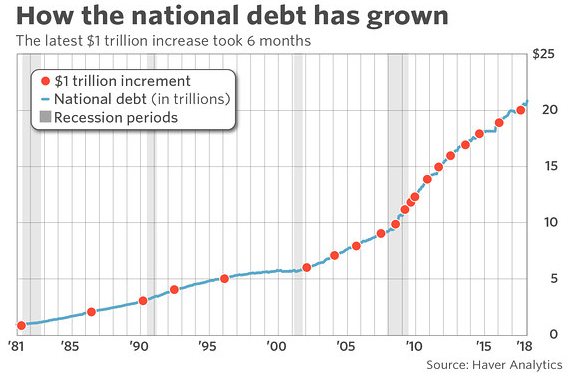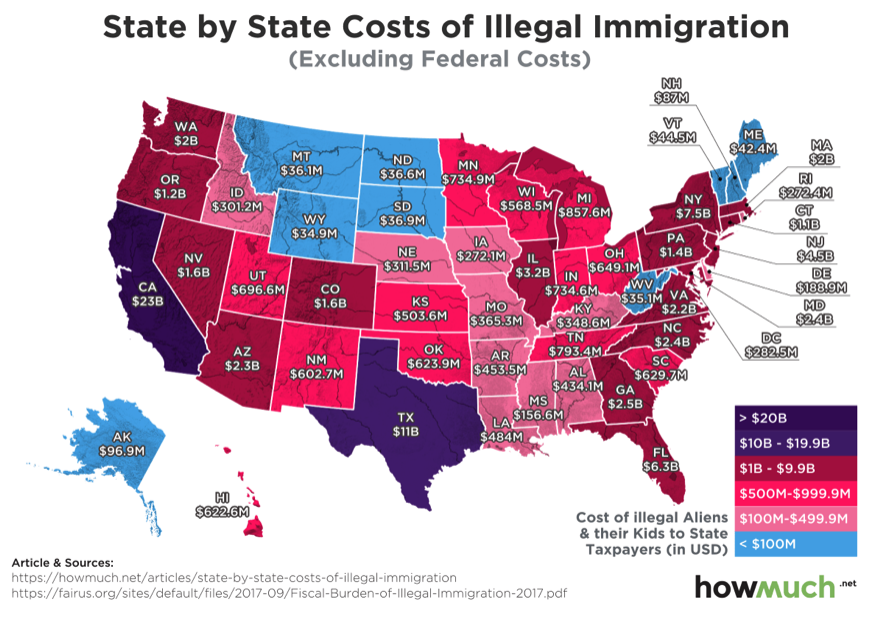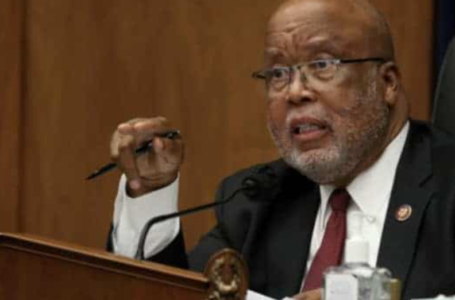State of the GA7 GOP race

Today, nine candidates are vying for the GOP primary nomination for the 7th, but if Republicans don’t learn from the lessons that Rob Woodall taught them, Republicans could very well lose in November.
Staff Writer.
Keen observers can draw lessons from Congressman Woodall’s stewardship of GA7 over the last decade. In the 2010 election, Rob Woodall won the GOP primary against Jody Hice to represent Georgia’s 7th Congressional District, then under different district boundaries. In January of 2011, Rob Woodall entered office, and, shortly thereafter, the district was redrawn to its present boundaries encompassing parts of Gwinnett and Forsyth. In the elections of 2014 and 2016, Woodall faced no GOP primary challengers.
By 2015 and against the backdrop of a high energy Trump campaign, a small but growing group of conservative Republicans, Trump Republicans, and Tea Party members, who saw Woodall as too moderate, organized.
During the 2016 Presidential Election, Hillary Clinton won Gwinnett. The evidence that GA7 was changing was irrefutable. Democrats didn’t want a moderate Republican in the 7th. They wanted a Democrat. Then, the 2017 special election for GA6 invigorated the Democratic party, and some of the money and organization from that campaign spilled out of GA6 into the metro area.
In 2018, against the backdrop of Stacy Abrams running for governor and against Lucy McBath and Carolyn Bourdeaux making strong pushes for GA6 and GA7, Rob Woodall had to fend off a GOP primary challenger. That challenger went on to take 28.7% of the vote in the 2018 GA7 Republican Primary. Worse, that challenger never endorsed Rob Woodall.
Perhaps better than any Republican, Rob Woodall understood the composition of the 7th as a rapidly changing minority-majority district with conservative anchors in South Forsyth and parts of Gwinnett. In an effort to shore up his conservative base, Woodall released a video where he was endorsed by Trey Gowdy, a South Carolina congressman, widely respected among Trump supporters. He also released a video featuring former Arkansas governor Huckabee endorsing Woodall, likely intended to bolster his support among religious voters. Then, as the 2018 election loomed, facing a well organized and energized opposition, Rob Woodall released a carefully calibrated multicultural campaign video.
It almost wasn’t enough. Despite his best efforts, Rob Woodall’s worst fears about his changing districted manifested. Where in previous elections Rob Woodall could count on a +9 point win, in 2018 Rob won the narrowest of victories against his Democratic opponent Carolyn Bourdeaux, less than 500 votes. An ununified GOP party combined with a hyper-energized Democratic climate plus a campaign that relied heavily on the incumbent advantage and name recognition almost cost him the election. Shortly after and despite his win, Woodall announced that he would not seek reelection in 2020, opening the door for a number of other GOP candidates.
Today, nine candidates are vying for the GOP primary nomination for the 7th, but if those Republicans don’t learn from the lessons that Rob Woodall taught them, Republicans could very well lose the district in November.
Lynne Homrich
Lynne was the first GOP candidate to announce that she was seeking the GA7 GOP nomination, giving her a first-mover advantage. Her campaign launch featured a hard-hitting advertisement where she strongly backed President Trump while taking aim at a small group of vocal junior Democratic congresswomen known as “The Squad.”
Lynne made a hard play for the Trump voters, which she suspected she’d need in a race to win the GA7 primary. To date, it’s unclear how deep her inroads are into the conservative voters, Trump voters, and Tea Party voters of the district. Some Trump supporters observed that Lynne didn’t vote in the 2016 presidential primary, so she could not have been a very strong Trump supporter back then. In fairness to Lynne, many of the GOP political outsider candidates have light voting histories.

Hailing from a wealthy and privileged class inside the Atlanta beltway and with no Republican political experience, Lynne Homrich was a newcomer to politics, a newcomer to the Republican Party, and a newcomer to GA7. Consequently, some Trump voters, Tea Party voters, and conservative voters of GA7 didn’t see Lynne as one of them. Today, some conservative voters of Forsyth and North Gwinnett remain apprehensive of Lynne who patently does not share the life challenges that drew many Trump voters to politics ― some do not accept Lynne as a Republican.
While Lynne’s advance with Trump supporters, Tea Party members, and conservative voters of the district is questionable, her positive attitude, hard work, combined with a professional campaign has seen her stock climb within the district, particularly with moderate Republicans, business owners, and women voters: target demographics for Lynne.
Lynne has also proven that she is a successful fundraiser, raising over $400,000. Although not an endorsement, Kelly Loeffler donated $2,800 to Lynne’s campaign on May 10, 2019. Loeffler was later appointed by Governor Kemp to be a U.S. Senator, replacing Senator Isakson after his retirement.

Seeing the broader threat to a future campaign, in April 2019, Senator Renee Unterman dubbed Lynne Homrich, “That Buckhead Lady,” a clear reference to the fact that Lynne makes her home inside the I285 Perimeter, some twelve miles from GA7’s nearest boundary.
Renee Unterman ✔@Renee_Unterman
Maybe that Buckhead lady running for #7thCongressional district might need some directions to #Cumming #Lawrenceville; turn on that Mercedes GPS for I-85 north or GA 400, be glad to show you around
See Renee Unterman’s other Tweets
It is clear that Lynne is a contender. She will have enough money to get her message to the voters of GA7. Given her donors and network, she might even be able to win a critical endorsement from a number of prominent politicians. An endorsement from a prominent Republican could transform how Lynne is seen by the Republican voters of GA7. A prominent Republican official campaigning with Lynne could give her the push she needs to gain much-needed support, which would likely come at the expense of Renee Unterman’s supporters.
In a general election run, Lynne Homrich stands to perform well. Lynne is already running what appears to be a general election campaign. She recently picked up an endorsement from a leading women’s group, Value In Electing Women PAC (VIEW PAC), (the same group that endorsed Karen Handel in GA6). This PAC will further help Lynne in suburban areas like Peachtree Corners, Berkely Lakes, Suwanee, and portions of South Forsyth ― particularly if the PAC makes media buys. Lynne is a professional businesswoman who shares an affinity with the suburban women of GA7, and she does not have political baggage that Democrats could attack.
To find a primary runoff spot, Lynne will need to win some conservative support or at a minimum keep Trump supporters and other conservatives from outright turning against her, while at the same time successfully siphoning Woodall’s primary moderate supporters away from Renee Unterman and the other candidates. Lynne’s biggest risk during a general election run is that she might not be able to energize the Republican base and that she could turn off Trump voters, Tea Party voters, and conservative voters.
Renee Unterman
When Renee Unterman entered the race in June of 2019, she was widely considered to be the front runner. Upon Renee’s entry, Carolyn Bourdeaux, the Democratic front runner, sent a fundraising e-mail titled, “MAJOR Republican enters the race.”

In many respects, Georgia Senator Renee Unterman is still the candidate to beat. She is the only elected official in the race. To date, Renee Unterman has focused on fundraising and strategically reinforcing powerful connections within the party, connections that are vital to her winning the nomination.
Renee’s prominent support for Casey Cagle during the 2018 gubernatorial race likely left her with fewer sponsors in the Georgia Republican Party. This also likely opened doors for candidates like Rich McCormick, Lynne Homrich, and Mark Gonsalves to enter the race.
Renee won’t be able to automatically count on 71.2% of Woodall’s 2018 GOP primary voters to vote for her, not when Mark Gonsalves, Lynne Homrich, and Rich McCormick are making a strong argument for those same voters.
Of all the candidates though, Renee Unterman is best positioned to reconstitute Woodall’s coalition, but such a feat will not be easy, and likely Renee’s efforts won’t be enough to give her an outright win in May’s primary. With so many candidates in the race, the 7th is probably headed for a GOP runoff.
Renee’s long legislative experience is a plus, but that legislative history also brings challenges. When asked about her support for then-candidate Donald Trump in August of 2016, she was quoted by the AJC saying, “It’s a choice between bad and worse — and I’m choosing bad.”
That kind of historical Anti-Trump language will make it difficult for her to expand her base into Trump Republicans and other conservative voters despite Renee’s recent support for the President. She was quoted in the AJC as saying the following about impeachment, “Yesterday, Nancy Pelosi and her pals launched yet another attack against President Trump based on liberal delusions rather than a factual foundation.”
Unterman’s support for the Living Infants Fairness Equality (LIFE) Act, commonly known as the Heartbeat Bill or HB481 might win her support with some conservatives, but, with a large population of well-educated suburban professional women living in GA7, Democrats could find a path to winning GA7 if the election is cast largely as a referendum on Georgia’s Pro-Life laws.
Still, Renee Unterman is a powerful contender who has overcome significant personal hardships, depression, and questions about her being employed by companies that she regulates as an elected official. No impropriety has ever been found, and many of the attacks on Renee can also be seen as smears or evidence of a strong woman overcoming personal struggles in a difficult life.
To find a primary runoff spot, Renee will need to bring conservative voters onboard, and limit the bleed of Woodall’s primary moderate supporters. Similar to Lynne, Renee’s biggest risk during a general election run is that she might not be able to energize Trump voters, Tea Party voters, and conservative voters. Renee shouldn’t assume that Trump voters, conservative voters, and Tea Party voters will fold in under her if she wins the GOP nomination ― history has shown that they might not show up to the polls. Renee will have to court those constituencies actively.
Dr. Rich McCormick
When Renee Unterman entered the race, some saw her as very similar to Rob Woodall, an establishment candidate who does not represent their views. Rich McCormick quickly filled the vacuum with a message and brand of politics that connected squarely with Trump supporters, Tea Party voters, and conservative voters, particularly in Forysth County which comprises 40% of GOP GA7 primary voters.
When Rich says he’ll stand up for the Second Amendment, people believe him because he shows up to Forsyth Tea Party events with a shoulder rig, proudly carrying the same firearm he carried as a United States Marine Corps Officer and aviator in conflicts around the world. When he stands up before Tea Party members and says proudly, “These are my kind of people,” the people believe him. When Dr. McCormick says he supports President Trump, the people believe him because he is flanked and endorsed by prominent Trump supporters in Forsyth county. Dr. McCormick’s career and roots in GA7 has energized a fair portion of the conservative voting base of the district, snuffing out hope that Homrich or Gonsalves could completely capture that constituency and making it harder for Unterman’s campaign to find affinity with those groups.
In 2012 during the GOP primary, Woodall’s Republican opponent garnered 17,730 votes while in 2018, Woodall’s Republican opponent won 11,883 votes. This indicates that there is a group of disenfranchised voters who would not vote for Woodall, given a choice. The question is whether that anti-Woodall block of voters can be won by a single candidate in a multi-candidate landscape.
Today, many GA7 Trump Republicans, conservatives, and Tea Party members who were not happy with Congressman Woodall seem to be gravitating quickly to their new paladin, a United States Marine Corps Officer Veteran and medical doctor named Rich McCormick. Still, Trump supporters, conservatives, and Tea Party members are distinct groups in the 7th and McCormick has not won all of them — Gonsalves is making overtures to those voters as well and Unterman could peel some of those voters with a concerted effort.
McCormick is not a one-dimensional candidate. He is sophisticated and well networked. He is a Marine Corps veteran officer and a medical doctor. His appeal will likely be broad. The question for McCormick is how far he can extend beyond that 28.7% of the electorate who did not vote for Rob Woodall in 2018 or in 2012. With a bit of work, McCormick is very well positioned to earn a runoff place in May’s GOP primary by consolidating the anti-Woodall sentiment and extending into Woodall’s electorate.
To find a primary runoff spot, McCormick will need to galvanize the anti-Woodall constituency while making inroads into the moderate Republican constituencies, beyond what the 2012 and 2018 GOP primary contenders could accomplish. In a general election, McCormick would have to extend far beyond the Anti-Woodall constituencies and gain supporters among the minority constituencies and more moderate Republican voters of Gwinnett. McCormick could find it difficult to moderate his positions enough to capture moderate Republicans without disenfranchising the constituencies that are critical to him winning the GOP nomination.
Mark Gonsalves
On June 8th, when Mark Gonsalves stood up to speak at the Forsyth County Republican Breakfast almost nobody knew who he was. He rose and delivered what was clearly the most articulate, well-shaped substantive public speech on policy delivered at the breakfast. Gonsalves is a strong public speaker and debater. Only Joe Profit’s speech came close.
Since then, Mark Gonsalves, a successful golfing executive, and real estate investor has maximized every opportunity presented to him. He has raised money and spent it frugally for maximum effect, and his efforts combined with a very energetic campaign schedule has rewarded Mark with being a contender in the GA7 race.
Mark has been careful to meet multiple times with many of the prominent activist Republicans in the district and has cultured friendships with a number of them. Only Mark Gonsalves has aired over a dozen 30-minute shows across four networks in the Atlanta metro area.
Mark has followed a disciplined campaign methodology that does not veer far from his core positions of the national debt, healthcare, the opioid epidemic, the China threat, and secure borders. In many ways, Mark comes across as the most well-grounded and far-thinking candidate in the field.
Mark’s ability to stand up in front of audiences and articulate detailed policy positions on complex topics like debt, healthcare costs and immigration demonstrates that he has full command of his positions and of the facts. His positions are not polling-based single paragraphs on a campaign website generated by a campaign manager — Mark speaks to his positions, in detail, in front of live audiences.
Mark later posts the charts and graphs he uses with references to his sources. In South Forsyth, only Todd Jones, GA District 25 Representative, and Sheriff Ron Freeman speak and make their points this forcefully using facts, data, and analytics in front of live audiences. In some respects, Mark’s style is also reminiscent of Congressman Woodall, who was also known to use data and analytics to make forceful points on the House floor. To capture the sophisticated voter’s support, more candidates need to follow Mark’s approach.
Mark Gonsalves for Congress GA7 ✔@MarkCongressGA7 ·
At last night’s @ForsythGOP meeting, I was asked about the source of the National Debt chart I used; Haver Analytics. We’re $22+ Trillion in the hole. You couldn’t run a business or your household like this, yet we allow Washington to increase our burden each year. #GA7, #GA07
Mark Gonsalves for Congress GA7 ✔@MarkCongressGA7
Asked about the the below 2018 State by State Costs of Illegal Immigration chart mentioned @ForsythGOP too. GA is $2.5 Billion. Unfortunately, ignoring facts doesn’t make problems go away. #GA7 #GA07
80 people are talking about this
Mark’s approach has separated him from the field of candidates and given him strong name recognition within the district. Now, he’s chipping away at the lead. He has managed to find affinity with the Tea Party, Trump supporters, and conservatives within the district, denying McCormick full claim on that constituency.
The question will be whether Gonsalves has enough tricks up his sleeve and enough money to make his case to enough voters in a manner that would earn him a runoff spot. Mark Gonsalves is consistent in presenting who he is and what he values. He’s relying on mature voters to vote Gonsalves. The other candidates should not underestimate Gonsalves, an articulate high-energy first-generation Portuguese American business executive running in a minority-majority district campaigning hand-in-hand with his equally articulate and charismatic Asian-American wife.
To find a runoff spot, Mark’s biggest challenge is getting his message out to the voters. Once candidates like Homrich and Unterman begin to make media buys and send out mass mailers, Mark’s message could be drowned out. Mark hasn’t veered to the right like McCormick, but, by not doing so, he’s also not picking up enough of the very conservative activist Republican voters who could carry his message via word of mouth and social media. Gonsalves should work hard to make his mark at the debates where his public speaking skills could earn him strong marks. A decisive debate win could change everything for Mark.
The GOP Field
The remaining Republican field is still large, but the other candidates have not found success in fundraising or in getting their word out. A couple of candidates like Ben Bullock and Lerah Lee have fundraised well but have not been able to create a groundswell. Maybe their strategies will have them come out strong in early 2020. Still, they’ll have to campaign very hard to catch up with the Top 4 by May. Others, like Jacqueline Tseng, and Lisa Babbage have not found success in fundraising. Eugene Yu entered the GA7 race in November as Joe Profit jumped out of the GA7 race to run in GA6. It’s unclear whether Mr. Yu will be able to catch up against the leaders before the Primary.
In all, the GOP minority campaigns are the ones who are being left out in the cold. Republicans could pay dearly in November for such myopic thinking in not supporting minority campaigns in a minority-majority district — who better to carry the message to the people and create groundswell?

If only Gonsalves, Homrich, McCormick, and Unterman remain in the race, it will mean that Republicans will once again nominate a Caucasian for office out of the 7th. Democrats will not fare much better on the diversity front if their nominee is a Caucasian woman, Bourdeaux — but between Carolyn, Nabilah, Zhara, and Brenda Democrats are almost assured of at least having a woman candidate for GA7.
Many GOP donors are not committing to any candidate while the field is large, so having a large number of candidates in the race is a drag to the top candidates fundraising. Many of these lower-tier candidates should consider dropping out for the sake of their party if they post poor 2019 Fourth Quarter fundraising numbers.
Conclusions
At this point, it is fairly likely that Gonsalves, Homrich, McCormick, or Unterman will win the GOP nomination. To divine whether Republicans can hold onto the district in November is more difficult. All the GA7 candidates should learn from Rob Woodall’s experience that GA7 is a dynamic rapidly-changing minority-majority district. To win GA7, Republicans need a big tent that does more than pay lip-service to minorities plus an energized base that will come out and vote. GOP party leaders also need to work hard to make sure that GOP candidates endorse and support their nominee. A repeat of 2018 where the defeated GOP primary candidate refuses to endorse the nominee and de-energizes constituencies from voting could very well expose the GOP to a loss in November.
Georgia is the new battleground for Democrats. Carolyn Bourdeaux‘s campaign is fundraising at a national level. If she has not yet passed the million-dollar mark in fundraising, she likely will before the fourth quarter closes. Republicans face a competent adversary that has the ear of the national Democratic party.
Meanwhile, Nabilah Islam has picked up a key endorsement from Occupy Democrats, a first for the candidate. She’s going for the grassroots. Nabilah’s ground-game and support with minorities should not be underestimated. At a minimum, she will likely energize a large percentage of minority and working-class Democrats. She’s running a positive campaign but she does not shy away from hard messages. In many respects, Nabilah is still driving the narrative for Democrats in GA7 and she is energizing their base.
A well known but new entrant to GA7 on the Democratic side, Zahra Karinshak, is fundraising strongly. State Representative Brenda Lopez Romero is also finding footing — energizing her voter base. If Carolyn is not careful, she could wind up in a runoff herself in May.
In all, Democrats are doing a spectacular job of energizing minorities in the District. Republicans are falling behind and will have a very hard time winning if grassroots candidates like Nabilah continue to turn precincts in Gwinnett Bright Blue: voting 80% or 90% Democrat.

The GOP Nominee will face a concentrated opposition from a very energized and coordinated Democratic party intent on flipping the district. There is no question that all democratic GA7 candidates will eagerly support their primary winner. Many will likely continue to campaign for the Democrat nominee.
The right GOP candidate will need to stand up a big tent, energize the base, and bring his or her losing GOP primary candidates onto the campaign trail. That GOP candidate will have to willingly go into Bright Blue precincts to draw moderate women and minorities. The wrong GOP candidate with a narrow angry vision or with not enough fire in the belly will surely lose the district to Democrats in November.
Keen observers can draw lessons from Congressman Woodall’s stewardship of GA7 over the last decade. In the 2010 election, Rob Woodall won the GOP primary against Jody Hice to represent Georgia’s 7th Congressional District, then under different district boundaries. In January of 2011, Rob Woodall entered office, and, shortly thereafter, the district was redrawn to its present boundaries encompassing parts of Gwinnett and Forsyth. In the elections of 2014 and 2016, Woodall faced no GOP primary challengers.
By 2015 and against the backdrop of a high energy Trump campaign, a small but growing group of conservative Republicans, Trump Republicans, and Tea Party members, who saw Woodall as too moderate, organized.
During the 2016 Presidential Election, Hillary Clinton won Gwinnett. The evidence that GA7 was changing was irrefutable. Democrats didn’t want a moderate Republican in the 7th. They wanted a Democrat. Then, the 2017 special election for GA6 invigorated the Democratic party, and some of the money and organization from that campaign spilled out of GA6 into the metro area.
In 2018, against the backdrop of Stacy Abrams running for governor and against Lucy McBath and Carolyn Bourdeaux making strong pushes for GA6 and GA7, Rob Woodall had to fend off a GOP primary challenger. That challenger went on to take 28.7% of the vote in the 2018 GA7 Republican Primary. Worse, that challenger never endorsed Rob Woodall.
Perhaps better than any Republican, Rob Woodall understood the composition of the 7th as a rapidly changing minority-majority district with conservative anchors in South Forsyth and parts of Gwinnett. In an effort to shore up his conservative base, Woodall released a video where he was endorsed by Trey Gowdy, a South Carolina congressman, widely respected among Trump supporters. He also released a video featuring former Arkansas governor Huckabee endorsing Woodall, likely intended to bolster his support among religious voters. Then, as the 2018 election loomed, facing a well organized and energized opposition, Rob Woodall released a carefully calibrated multicultural campaign video.
It almost wasn’t enough. Despite his best efforts, Rob Woodall’s worst fears about his changing districted manifested. Where in previous elections Rob Woodall could count on a +9 point win, in 2018 Rob won the narrowest of victories against his Democratic opponent Carolyn Bourdeaux, less than 500 votes. An ununified GOP party combined with a hyper-energized Democratic climate plus a campaign that relied heavily on the incumbent advantage and name recognition almost cost him the election. Shortly after and despite his win, Woodall announced that he would not seek reelection in 2020, opening the door for a number of other GOP candidates.
Today, nine candidates are vying for the GOP primary nomination for the 7th, but if those Republicans don’t learn from the lessons that Rob Woodall taught them, Republicans could very well lose the district in November.
Lynne Homrich
Lynne was the first GOP candidate to announce that she was seeking the GA7 GOP nomination, giving her a first-mover advantage. Her campaign launch featured a hard-hitting advertisement where she strongly backed President Trump while taking aim at a small group of vocal junior Democratic congresswomen known as “The Squad.”
Lynne made a hard play for the Trump voters, which she suspected she’d need in a race to win the GA7 primary. To date, it’s unclear how deep her inroads are into the conservative voters, Trump voters, and Tea Party voters of the district. Some Trump supporters observed that Lynne didn’t vote in the 2016 presidential primary, so she could not have been a very strong Trump supporter back then. In fairness to Lynne, many of the GOP political outsider candidates have light voting histories.

Hailing from a wealthy and privileged class inside the Atlanta beltway and with no Republican political experience, Lynne Homrich was a newcomer to politics, a newcomer to the Republican Party, and a newcomer to GA7. Consequently, some Trump voters, Tea Party voters, and conservative voters of GA7 didn’t see Lynne as one of them. Today, some conservative voters of Forsyth and North Gwinnett remain apprehensive of Lynne who patently does not share the life challenges that drew many Trump voters to politics ― some do not accept Lynne as a Republican.
While Lynne’s advance with Trump supporters, Tea Party members, and conservative voters of the district is questionable, her positive attitude, hard work, combined with a professional campaign has seen her stock climb within the district, particularly with moderate Republicans, business owners, and women voters: target demographics for Lynne.
Lynne has also proven that she is a successful fundraiser, raising over $400,000. Although not an endorsement, Kelly Loeffler donated $2,800 to Lynne’s campaign on May 10, 2019. Loeffler was later appointed by Governor Kemp to be a U.S. Senator, replacing Senator Isakson after his retirement.

Seeing the broader threat to a future campaign, in April 2019, Senator Renee Unterman dubbed Lynne Homrich, “That Buckhead Lady,” a clear reference to the fact that Lynne makes her home inside the I285 Perimeter, some twelve miles from GA7’s nearest boundary.
Renee Unterman ✔@Renee_Unterman
Maybe that Buckhead lady running for #7thCongressional district might need some directions to #Cumming #Lawrenceville; turn on that Mercedes GPS for I-85 north or GA 400, be glad to show you around
See Renee Unterman’s other Tweets
It is clear that Lynne is a contender. She will have enough money to get her message to the voters of GA7. Given her donors and network, she might even be able to win a critical endorsement from a number of prominent politicians. An endorsement from a prominent Republican could transform how Lynne is seen by the Republican voters of GA7. A prominent Republican official campaigning with Lynne could give her the push she needs to gain much-needed support, which would likely come at the expense of Renee Unterman’s supporters.
In a general election run, Lynne Homrich stands to perform well. Lynne is already running what appears to be a general election campaign. She recently picked up an endorsement from a leading women’s group, Value In Electing Women PAC (VIEW PAC), (the same group that endorsed Karen Handel in GA6). This PAC will further help Lynne in suburban areas like Peachtree Corners, Berkely Lakes, Suwanee, and portions of South Forsyth ― particularly if the PAC makes media buys. Lynne is a professional businesswoman who shares an affinity with the suburban women of GA7, and she does not have political baggage that Democrats could attack.
To find a primary runoff spot, Lynne will need to win some conservative support or at a minimum keep Trump supporters and other conservatives from outright turning against her, while at the same time successfully siphoning Woodall’s primary moderate supporters away from Renee Unterman and the other candidates. Lynne’s biggest risk during a general election run is that she might not be able to energize the Republican base and that she could turn off Trump voters, Tea Party voters, and conservative voters.
Renee Unterman
When Renee Unterman entered the race in June of 2019, she was widely considered to be the front runner. Upon Renee’s entry, Carolyn Bourdeaux, the Democratic front runner, sent a fundraising e-mail titled, “MAJOR Republican enters the race.”

In many respects, Georgia Senator Renee Unterman is still the candidate to beat. She is the only elected official in the race. To date, Renee Unterman has focused on fundraising and strategically reinforcing powerful connections within the party, connections that are vital to her winning the nomination.
Renee’s prominent support for Casey Cagle during the 2018 gubernatorial race likely left her with fewer sponsors in the Georgia Republican Party. This also likely opened doors for candidates like Rich McCormick, Lynne Homrich, and Mark Gonsalves to enter the race.
Renee won’t be able to automatically count on 71.2% of Woodall’s 2018 GOP primary voters to vote for her, not when Mark Gonsalves, Lynne Homrich, and Rich McCormick are making a strong argument for those same voters.
Of all the candidates though, Renee Unterman is best positioned to reconstitute Woodall’s coalition, but such a feat will not be easy, and likely Renee’s efforts won’t be enough to give her an outright win in May’s primary. With so many candidates in the race, the 7th is probably headed for a GOP runoff.
Renee’s long legislative experience is a plus, but that legislative history also brings challenges. When asked about her support for then-candidate Donald Trump in August of 2016, she was quoted by the AJC saying, “It’s a choice between bad and worse — and I’m choosing bad.”
That kind of historical Anti-Trump language will make it difficult for her to expand her base into Trump Republicans and other conservative voters despite Renee’s recent support for the President. She was quoted in the AJC as saying the following about impeachment, “Yesterday, Nancy Pelosi and her pals launched yet another attack against President Trump based on liberal delusions rather than a factual foundation.”
Unterman’s support for the Living Infants Fairness Equality (LIFE) Act, commonly known as the Heartbeat Bill or HB481 might win her support with some conservatives, but, with a large population of well-educated suburban professional women living in GA7, Democrats could find a path to winning GA7 if the election is cast largely as a referendum on Georgia’s Pro-Life laws.
Still, Renee Unterman is a powerful contender who has overcome significant personal hardships, depression, and questions about her being employed by companies that she regulates as an elected official. No impropriety has ever been found, and many of the attacks on Renee can also be seen as smears or evidence of a strong woman overcoming personal struggles in a difficult life.
To find a primary runoff spot, Renee will need to bring conservative voters onboard, and limit the bleed of Woodall’s primary moderate supporters. Similar to Lynne, Renee’s biggest risk during a general election run is that she might not be able to energize Trump voters, Tea Party voters, and conservative voters. Renee shouldn’t assume that Trump voters, conservative voters, and Tea Party voters will fold in under her if she wins the GOP nomination ― history has shown that they might not show up to the polls. Renee will have to court those constituencies actively.
Dr. Rich McCormick
When Renee Unterman entered the race, some saw her as very similar to Rob Woodall, an establishment candidate who does not represent their views. Rich McCormick quickly filled the vacuum with a message and brand of politics that connected squarely with Trump supporters, Tea Party voters, and conservative voters, particularly in Forysth County which comprises 40% of GOP GA7 primary voters.
When Rich says he’ll stand up for the Second Amendment, people believe him because he shows up to Forsyth Tea Party events with a shoulder rig, proudly carrying the same firearm he carried as a United States Marine Corps Officer and aviator in conflicts around the world. When he stands up before Tea Party members and says proudly, “These are my kind of people,” the people believe him. When Dr. McCormick says he supports President Trump, the people believe him because he is flanked and endorsed by prominent Trump supporters in Forsyth county. Dr. McCormick’s career and roots in GA7 has energized a fair portion of the conservative voting base of the district, snuffing out hope that Homrich or Gonsalves could completely capture that constituency and making it harder for Unterman’s campaign to find affinity with those groups.
In 2012 during the GOP primary, Woodall’s Republican opponent garnered 17,730 votes while in 2018, Woodall’s Republican opponent won 11,883 votes. This indicates that there is a group of disenfranchised voters who would not vote for Woodall, given a choice. The question is whether that anti-Woodall block of voters can be won by a single candidate in a multi-candidate landscape.
Today, many GA7 Trump Republicans, conservatives, and Tea Party members who were not happy with Congressman Woodall seem to be gravitating quickly to their new paladin, a United States Marine Corps Officer Veteran and medical doctor named Rich McCormick. Still, Trump supporters, conservatives, and Tea Party members are distinct groups in the 7th and McCormick has not won all of them — Gonsalves is making overtures to those voters as well and Unterman could peel some of those voters with a concerted effort.
McCormick is not a one-dimensional candidate. He is sophisticated and well networked. He is a Marine Corps veteran officer and a medical doctor. His appeal will likely be broad. The question for McCormick is how far he can extend beyond that 28.7% of the electorate who did not vote for Rob Woodall in 2018 or in 2012. With a bit of work, McCormick is very well positioned to earn a runoff place in May’s GOP primary by consolidating the anti-Woodall sentiment and extending into Woodall’s electorate.
To find a primary runoff spot, McCormick will need to galvanize the anti-Woodall constituency while making inroads into the moderate Republican constituencies, beyond what the 2012 and 2018 GOP primary contenders could accomplish. In a general election, McCormick would have to extend far beyond the Anti-Woodall constituencies and gain supporters among the minority constituencies and more moderate Republican voters of Gwinnett. McCormick could find it difficult to moderate his positions enough to capture moderate Republicans without disenfranchising the constituencies that are critical to him winning the GOP nomination.
Mark Gonsalves
On June 8th, when Mark Gonsalves stood up to speak at the Forsyth County Republican Breakfast almost nobody knew who he was. He rose and delivered what was clearly the most articulate, well-shaped substantive public speech on policy delivered at the breakfast. Gonsalves is a strong public speaker and debater. Only Joe Profit’s speech came close.
Since then, Mark Gonsalves, a successful golfing executive, and real estate investor has maximized every opportunity presented to him. He has raised money and spent it frugally for maximum effect, and his efforts combined with a very energetic campaign schedule has rewarded Mark with being a contender in the GA7 race.
Mark has been careful to meet multiple times with many of the prominent activist Republicans in the district and has cultured friendships with a number of them. Only Mark Gonsalves has aired over a dozen 30-minute shows across four networks in the Atlanta metro area.
Mark has followed a disciplined campaign methodology that does not veer far from his core positions of the national debt, healthcare, the opioid epidemic, the China threat, and secure borders. In many ways, Mark comes across as the most well-grounded and far-thinking candidate in the field.
Mark’s ability to stand up in front of audiences and articulate detailed policy positions on complex topics like debt, healthcare costs and immigration demonstrates that he has full command of his positions and of the facts. His positions are not polling-based single paragraphs on a campaign website generated by a campaign manager — Mark speaks to his positions, in detail, in front of live audiences.
Mark later posts the charts and graphs he uses with references to his sources. In South Forsyth, only Todd Jones, GA District 25 Representative, and Sheriff Ron Freeman speak and make their points this forcefully using facts, data, and analytics in front of live audiences. In some respects, Mark’s style is also reminiscent of Congressman Woodall, who was also known to use data and analytics to make forceful points on the House floor. To capture the sophisticated voter’s support, more candidates need to follow Mark’s approach.
Mark Gonsalves for Congress GA7 ✔@MarkCongressGA7 ·
At last night’s @ForsythGOP meeting, I was asked about the source of the National Debt chart I used; Haver Analytics. We’re $22+ Trillion in the hole. You couldn’t run a business or your household like this, yet we allow Washington to increase our burden each year. #GA7, #GA07
Mark Gonsalves for Congress GA7 ✔@MarkCongressGA7
Asked about the the below 2018 State by State Costs of Illegal Immigration chart mentioned @ForsythGOP too. GA is $2.5 Billion. Unfortunately, ignoring facts doesn’t make problems go away. #GA7 #GA07
80 people are talking about this
Mark’s approach has separated him from the field of candidates and given him strong name recognition within the district. Now, he’s chipping away at the lead. He has managed to find affinity with the Tea Party, Trump supporters, and conservatives within the district, denying McCormick full claim on that constituency.
The question will be whether Gonsalves has enough tricks up his sleeve and enough money to make his case to enough voters in a manner that would earn him a runoff spot. Mark Gonsalves is consistent in presenting who he is and what he values. He’s relying on mature voters to vote Gonsalves. The other candidates should not underestimate Gonsalves, an articulate high-energy first-generation Portuguese American business executive running in a minority-majority district campaigning hand-in-hand with his equally articulate and charismatic Asian-American wife.
To find a runoff spot, Mark’s biggest challenge is getting his message out to the voters. Once candidates like Homrich and Unterman begin to make media buys and send out mass mailers, Mark’s message could be drowned out. Mark hasn’t veered to the right like McCormick, but, by not doing so, he’s also not picking up enough of the very conservative activist Republican voters who could carry his message via word of mouth and social media. Gonsalves should work hard to make his mark at the debates where his public speaking skills could earn him strong marks. A decisive debate win could change everything for Mark.
The GOP Field
The remaining Republican field is still large, but the other candidates have not found success in fundraising or in getting their word out. A couple of candidates like Ben Bullock and Lerah Lee have fundraised well but have not been able to create a groundswell. Maybe their strategies will have them come out strong in early 2020. Still, they’ll have to campaign very hard to catch up with the Top 4 by May. Others, like Jacqueline Tseng, and Lisa Babbage have not found success in fundraising. Eugene Yu entered the GA7 race in November as Joe Profit jumped out of the GA7 race to run in GA6. It’s unclear whether Mr. Yu will be able to catch up against the leaders before the Primary.
In all, the GOP minority campaigns are the ones who are being left out in the cold. Republicans could pay dearly in November for such myopic thinking in not supporting minority campaigns in a minority-majority district — who better to carry the message to the people and create groundswell?

If only Gonsalves, Homrich, McCormick, and Unterman remain in the race, it will mean that Republicans will once again nominate a Caucasian for office out of the 7th. Democrats will not fare much better on the diversity front if their nominee is a Caucasian woman, Bourdeaux — but between Carolyn, Nabilah, Zhara, and Brenda Democrats are almost assured of at least having a woman candidate for GA7.
Many GOP donors are not committing to any candidate while the field is large, so having a large number of candidates in the race is a drag to the top candidates fundraising. Many of these lower-tier candidates should consider dropping out for the sake of their party if they post poor 2019 Fourth Quarter fundraising numbers.
Conclusions
At this point, it is fairly likely that Gonsalves, Homrich, McCormick, or Unterman will win the GOP nomination. To divine whether Republicans can hold onto the district in November is more difficult. All the GA7 candidates should learn from Rob Woodall’s experience that GA7 is a dynamic rapidly-changing minority-majority district. To win GA7, Republicans need a big tent that does more than pay lip-service to minorities plus an energized base that will come out and vote. GOP party leaders also need to work hard to make sure that GOP candidates endorse and support their nominee. A repeat of 2018 where the defeated GOP primary candidate refuses to endorse the nominee and de-energizes constituencies from voting could very well expose the GOP to a loss in November.
Georgia is the new battleground for Democrats. Carolyn Bourdeaux‘s campaign is fundraising at a national level. If she has not yet passed the million-dollar mark in fundraising, she likely will before the fourth quarter closes. Republicans face a competent adversary that has the ear of the national Democratic party.
Meanwhile, Nabilah Islam has picked up a key endorsement from Occupy Democrats, a first for the candidate. She’s going for the grassroots. Nabilah’s ground-game and support with minorities should not be underestimated. At a minimum, she will likely energize a large percentage of minority and working-class Democrats. She’s running a positive campaign but she does not shy away from hard messages. In many respects, Nabilah is still driving the narrative for Democrats in GA7 and she is energizing their base.
A well known but new entrant to GA7 on the Democratic side, Zahra Karinshak, is fundraising strongly. State Representative Brenda Lopez Romero is also finding footing — energizing her voter base. If Carolyn is not careful, she could wind up in a runoff herself in May.
In all, Democrats are doing a spectacular job of energizing minorities in the District. Republicans are falling behind and will have a very hard time winning if grassroots candidates like Nabilah continue to turn precincts in Gwinnett Bright Blue: voting 80% or 90% Democrat.

The GOP Nominee will face a concentrated opposition from a very energized and coordinated Democratic party intent on flipping the district. There is no question that all democratic GA7 candidates will eagerly support their primary winner. Many will likely continue to campaign for the Democrat nominee.
The right GOP candidate will need to stand up a big tent, energize the base, and bring his or her losing GOP primary candidates onto the campaign trail. That GOP candidate will have to willingly go into Bright Blue precincts to draw moderate women and minorities. The wrong GOP candidate with a narrow angry vision or with not enough fire in the belly will surely lose the district to Democrats in November.


















